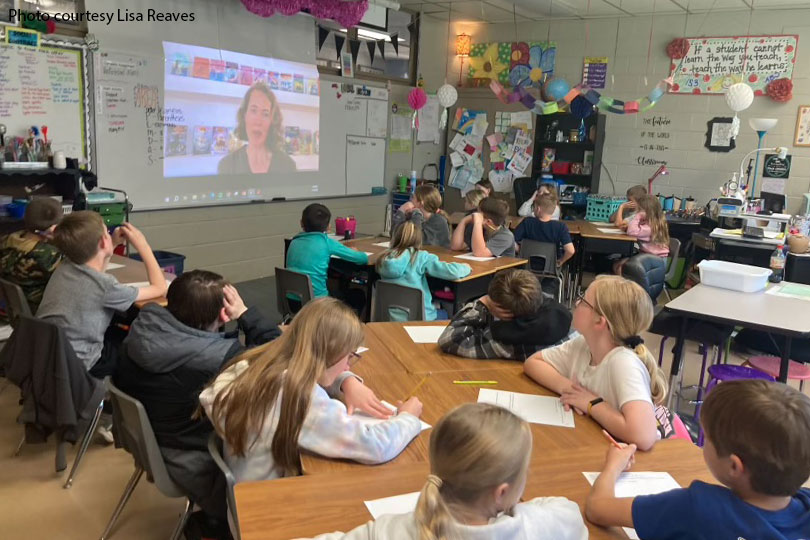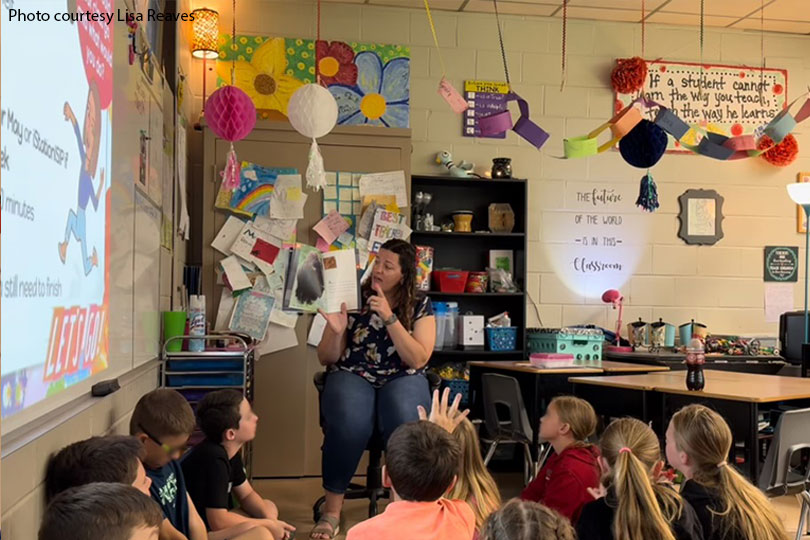By Emmy Powell
Communications Specialist
A North Texas teacher strives to cultivate agricultural literacy in her classroom every day.
Lisa Reaves teaches fourth grade math and science at Lindsay Elementary School, and her passion for education and agriculture is evident through her lessons and activities.
She originally wanted to pursue a degree in business, but after her mom helped her see her passion for helping others learn, Reaves changed her degree to education with a minor in special education.
And 21 years later, she is still helping children learn.
She has taught several grade levels over the years.
“My student teaching led me to a job in pre-K with special needs. I did that for five years in Sulfur Springs in East Texas. When we moved back closer to home, I did that for another five years in Sanger, and then they moved me,” she said. “Then, I went to second grade, and I taught that for five years before moving back to my hometown in Lindsay. I’ve been teaching fourth grade for the last six years.”
Reaves enjoys getting to know her students and helping them grow in their education.
“Every day is different, and I get to see the world through the kids’ eyes,” she said. “I can’t think of anything else that I would rather do.”
She finds ways to teach her students about the world of agriculture and uses Texas Farm Bureau’s Ag in the Classroom resources to help.
Reaves participates in the semester-long program Farm From School to allow her students a chance to learn about agriculture across the state through virtual farm visits. She also uses lesson plans from the curriculum matrix.

“So many of our kids, even in rural communities, are so distanced from ag in that firsthand sense,” Reaves said. “We all eat. We all have a part in it, but they’re not getting it firsthand, getting to have their hands in the dirt. What we’re doing with Ag in the Classroom is giving our kids the hands-on experiences that they can’t witness in a normal day-to-day life.”
The students look forward to their monthly Farm From School virtual visits with farmers and ranchers.
“They get to see so many things, and it creates a passion for ag in them,” she said. “One student told me he was amazed with the amount of technology involved. They have amazing technology at their fingertips, and they were in awe of that.”
Reaves fosters conversations about agriculture by tying components into their lessons, like using square and round hay bales in math lessons.
“I get to see the kids getting excited about ag, and we’ve had career talks about the things that they’re able to do later in life. Even if they weren’t involved in farming, now farmers need people in the different areas with engineers and other careers,” Reaves said.
She has been planting seeds and growing agricultural literacy in her classroom and plans to continue to do so with each new school year.
For more information on Ag in the Classroom resources and other educational opportunities available from Texas Farm Bureau, visit texasfarmbureau.org/aitc.


Leave A Comment